It’s our last update until the New Year – we give you the Queen’s speech (not that one, the one at the State opening) and the OfS annual review, to get you ready for what will be coming in the New Year. At the time of writing MPs are expected to pass the second reading of the EU Withdrawal Agreement Bill, paving the way for the more detailed third reading stage in January.
Happy Christmas and a happy new year to all our readers, and thank you for your patience in what has been a very interesting year!
Queen’s speech (again)
You can read the Queen’s Speech here along with the PM’s introduction and briefing notes about all the legislation etc. The Executive Summary in this briefing document sets out the legislative programme clearly.
This Queen’s Speech will deliver Brexit on 31 January and allow the Government to deliver on people’s priorities and unleash the country’s potential. The Government’s first priority is to deliver Brexit on 31 January and to negotiate an ambitious free trade agreement with the EU that benefits the whole country This Queen’s Speech sets out how we will seize the opportunities created by Brexit:
- The European Union (Withdrawal Agreement) Bill will ratify the deal secured by the Government in October, delivering Brexit.
- The Agriculture Bill will reform UK agriculture by improving environmental protections and strengthening transparency and fairness in the supply chain.
- The Fisheries Bill will enable us to reclaim control over our waters, ensuring the sustainability of our marine life and environment.
- The Trade Bill will establish the Trade Remedies Authority to protect UK industry from unfair trading practices.
- We will end free movement and pave the way for a modern, fairer points based immigration system.
You will remember that “The Home Secretary has commissioned the Migration Advisory Committee (the MAC) to consider points-based systems, including the Australian immigration system and other international comparators. The MAC is due to report in January 2020.”
And this from the more detailed briefing:
Our new single system will allocate points on a range of criteria in three broad categories and it will be focused on skills and talents, not nationality:
- Migrants who have received world-leading awards or otherwise demonstrated exceptional talent and sponsored entrepreneurs setting up a new business or investors.
- Skilled workers who meet the criteria of the points-based system and have a job offer.
- Sector-specific workers who enter on schemes for low-skilled work, youth mobility or short-term visits. These provide no route to permanent settlement and will be revised on an ongoing basis based on expert advice from the MAC.
Although it isn’t mentioned in the briefing, this was the October 2019 briefing on graduate employment rights
- A Private International Law (Implementation of Agreements) Bill will provide a clear framework for cross-border resolutions for individuals, families and UK businesses involved in international legal disputes.
- We will provide certainty, stability and new opportunities for the financial services sector.
The Speech sets out a number of proposals to invest in and support our public services:
- Legislation will enshrine in law the largest cash settlement in the NHS’s history and we will deliver the NHS Long Term Plan in England to ensure our health service is fit for the future.
- A Medicines and Medical Devices Bill will ensure that our NHS and patients can have faster access to innovative medicines, while supporting the growth of our domestic sector.
- We will also pursue reforms to make the NHS safer for patients.
- We will provide extra funding for social care and will urgently seek cross-party consensus for much needed long-term reform so that nobody needing care should be forced to sell their home to pay for it.
- We will continue work to modernise and reform the Mental Health Act to ensure people get the support they need, with a much greater say in their care.
- We will increase levels of funding per pupil to ensure all children can access a high quality education.
This is from the more detailed briefing on education
- The Government is giving schools a multi-billion pound boost, investing a total of £14 billion more over three years, on top of £5 billion for teacher’s pensions. Overall, that translates to £150 million a week. The core schools budget will be £7.1 billion higher in 2022-23 compared to this year.
- Every school will have more money for every child and we will level up minimum per-pupil funding for secondary schools to £5,000, and primary schools to £3,750 next year, and £4,000 the year after.
- From next year, we will legally require all local authorities to deliver the minimum per-pupil funding in their local area. And that will be an important first step towards delivering this funding directly to schools, through a single national formula, so that it is fair and equitable for every school in the country.
- It is vital we ensure that the pay offer for teachers is positioned at the top of the graduate labour market – ensuring we recruit and retain a world class profession – and that is why we have announced plans to significantly raise starting pay to £30,000 nationally by September 2022.
- The Government will also continue to expand the successful free schools programme, promoting choice, innovation and higher standards to kick-start wider improvement.
- The Government wants to bring renewed focus to further and technical education, and will ensure our post-16 education system enables young people and adults to gain the skills required for success and to help the economy.
- This means an extra £400 million for 16-19 year-old education next year, an increase of 7 per cent overall in 16-19 year-old funding and the biggest injection of new money in a single year since 2010.
- There will also be additional investment in T Levels, supporting continued preparation for these courses with the first three starting from September 2020.
- The Government will invest an additional £3 billion over the course of this Parliament to support the creation of a ‘National Skills Fund’.
- The Government will invest £8 billion over five years in a rebuilding programme to upgrade the entire further education college estate.
- The Government are also planning to establish 20 Institutes of Technology across England- unique collaborations between further education colleges, universities, and employers –– offering higher technical education and training in science, technology, engineering and maths subjects, to give people the skills they need for key sectors such as digital, construction, advanced manufacturing and engineering.
- The Government is committed to making sure higher education funding reflects a sustainable model that supports high quality provision, maintaining our world-leading reputation for higher education and delivering value for money for both students and the taxpayer.
- The Government will ensure that our universities are places where free speech can thrive, and will strengthen academic freedoms.
- The Government wants to ensure we deliver better value for students in post- 18 education, have more options that offer the right education for each individual, and remove barriers to access for disadvantaged young people.
- The Government is considering the thoughtful recommendations made in the Augar Review carefully.
- The Government will boost Ofsted inspection so that parents can be confident they have the fullest picture of quality at their child’s school. We will consult on lifting the inspection exemption so that outstanding schools are inspected routinely.
- To ensure children are getting an active start to life, The Government will invest in primary school PE teaching and ensure that it is being properly delivered. The Government wants to do more to help schools make good use of their sports facilities and to promote physical literacy and competitive sport.
The Speech sets out a variety of measures to support workers and families:
- An Employment Bill will enhance workers’ rights, supporting flexible working, extending unpaid carers’ entitlement to leave and ensure workers keep their hard earned tips.
- A Renters’ Reform Bill will enhance renters’ security and improve protections for short-term tenants by abolishing “no-fault” evictions and introducing a lifetime deposit.
- To ensure residents are safe in their homes, we will bring forward measures to implement the most urgent recommendations from the first phase of the Grenfell Tower Public Inquiry. We will also publish a draft Building Safety Bill to implement the recommendations of Dame Judith Hackitt’s review of building regulations.
- Recognising our commitment to making the UK the safest place to be online, we will continue to develop an Online Harms Bill.
- The Pension Schemes Bill will enable people to better plan their saving for later life and improve the protection of people’s pensions, strengthening the regulator’s powers to tackle irresponsible management of pension schemes.
- We will reduce the cost of living, including through increases to the National Insurance threshold and the National Living Wage.
The Speech reaffirms our commitment to strengthening the criminal justice system, ensuring it keeps people safe:
- A Counter Terrorism (Sentencing and Release) Bill will ensure the most serious and dangerous terrorist offenders stay in prison for longer.
- A Sentencing Bill will ensure the most serious and violent offenders serve more of their sentences in custody.
- A Serious Violence Bill will place a duty on public bodies to work together to identify and tackle early factors that can lead to crime and ensure the police can more easily stop and search habitual knife carriers.
- A Police Powers and Protection Bill will establish a Police Covenant and ensure the police are able to fully conduct their duties by providing them with additional support and protection.
- Recognising the pain felt by victims and their families when offenders refuse to disclose certain information about their crimes, the Prisoners (Disclosure of Information about Victims) Bill will require the Parole Board to take this into account – a version of “Helen’s Law”.
- The Divorce, Dissolution and Separation Bill will remove unnecessary conflict during the divorce process, in which children are so often caught up, while ensuring that divorce remains a carefully considered decision.
- We will re-introduce the Domestic Abuse Bill, strengthening protections for victims and providing new enforcement mechanisms.
- The Extradition (Provisional Arrest) Bill will empower police officers to immediately arrest someone wanted for a serious crime committed in a trusted country, without having to apply to a court for a warrant first.
- We will consider proposals to deal more effectively with foreign national offenders, including increasing the maximum penalty for those who return to the UK in breach of a deportation order.
- We will set up a Royal Commission to improve the efficiency and effectiveness of the criminal justice process.
The Speech sets out how we will improve our infrastructure and level up opportunity across the country:
- We will invest in public services and infrastructure while keeping borrowing and debt under control and will publish a National Instructure Strategy.
- We will accelerate the delivery of fast, reliable and secure broadband networks to millions of homes, with legislation to make it easier for telecoms companies to install digital infrastructure and to ensure all new homes are built with reliable and fast internet.
- The Air Traffic Management and Unmanned Aircraft Bill, will maintain our position as a world-leader in aviation by modernising our airspace, making journeys quicker, quieter and cleaner whilst also tackling the unlawful use of unmanned aircraft (drones).
- Legislation will be brought forward to ensure that minimum levels of service are maintained during transport strikes so that hard-working commuters can still get to work.
- We will develop measures to ensure people can get home quickly when an airline goes bust.
- In response to the Williams Review, we will publish a White Paper containing reforms that address passengers needs while providing value for the taxpayer and delivering economic benefits across the UK.
- A draft National Security and Investment Bill will strengthen the Government’s powers to investigate and intervene in business transactions (takeovers and mergers) to protect national security.
- To maintain the UK’s position as a global science superpower, we will boost public R&D funding, launch a comprehensive UK Space Strategy and develop proposals for a new funding agency.
The detailed note says:
To build on our world-leading excellence in science and deliver solutions to some of the world’s greatest challenges we are:
- Setting out plans to significantly boost public R&D funding.
- Backing a new approach to funding high-risk, high-payoff research in emerging fields of research and technology. The Government will work with industry and academics to finalise this proposal.
- Introducing a new fast-track immigration scheme for the best and brightest scientists and researchers.
- Reducing bureaucracy in research funding to ensure our brilliant scientists are able to spend as much time as possible creating new ideas.
- Establishing a new National Space Council and launching a comprehensive UK Space Strategy.
- The R&D funding plans the Government will unveil will help accelerate our ambition to reach 2.4 per cent of GDP spent on R&D by 2027. This boost in funding will allow the UK to invest strategically in cutting-edge science, while encouraging the world’s most innovative businesses to invest in the UK.
- Under our new funding plans the Government will prioritise investment in industries of the future where the UK can take a commanding lead – such as life sciences, clean energy, space, design, computing, robotics and artificial intelligence. The Government will drive forward development of these technologies by investing in hubs around world-leading universities.
- Some of this new R&D spending will go towards a new approach to funding emerging fields of research and technology. It will provide long term funding to support visionary high-risk, high-pay off scientific, engineering, and technology ideas, and will complement the UK’s existing world class research system.
- The Government will increase the tax credit rate to 13 per cent and review what R&D-related costs qualify for tax credits, so that important investments in cloud computing and data, which boost productivity and innovation, are also incentivised.
- Removing unnecessary bureaucracy in the science funding system will help ensure all UK investments have the greatest possible impact by cutting the time wasted by scientists filling out forms.
- The UK’s new fast-track immigration scheme for top scientists and researchers will help significantly enhance the intellectual and knowledge base of the UK. The changes to the immigration system will:
- Abolish the cap on numbers under the Tier 1 Exceptional Talent Visas;
- Expand the pool of UK research institutes and universities able to endorse candidates; and
- Create criteria that confer automatic endorsement, subject to immigration checks.
- Under the current Tier 1 Visa system, the immigration system already:
- Ensures dependents have full access to the labour market;
- Removes the need to hold an offer of employment before arriving; and
- Provides an accelerated path to settlement.
- This new immigration scheme will support our world-leading research by ensuring that UK teams can recruit the best skills and talent from abroad. We will continue to collaborate internationally and with the EU on scientific research, including with the EU through Horizon.
- The Government will unlock long-term capital in pension funds to invest in and commercialise our scientific discoveries, creating a vibrant science-based economy post-Brexit.
- We will publish a White Paper to reiterate our commitment to levelling up opportunities and investment in the regions across England.
- We will reform business rates to protect high streets and communities from excessive tax hikes and keep town centres vibrant. We will bring forward the next business rates revaluation and make future revaluations in England more frequent.
This Queen’s Speech deepens our commitment to safeguarding the natural environment for future generations:
- Our landmark Environment Bill will protect and preserve the planet for generations to come. It will establish a new Office for Environmental Protection, increase local powers to tackle air pollution, introduce charges for specified single use plastic items, and ban exports of polluting plastic waste to non-OECD countries.
- We will also continue to take steps to meet the world-leading target of net zero greenhouse gas emissions by 2050.
- We will introduce legislation to promote and protect animal welfare, including measures to increase maximum sentences for animal cruelty, to ensure animals are recognised as sentient beings, and ban the import and export of trophies from endangered animals.
The Government will continue to work to strengthen the bonds between the different parts of the UK and to safeguard its constitution and democratic processes:
- We will continue to uphold the constitutional integrity of the UK, working constructively with the devolved administrations and their legislatures to ensure our Union continues to flourish.
- We will urgently pursue the restoration of the devolved power-sharing government at Stormont to ensure the people of Northern Ireland have the political leadership of their elected local representatives.
- We will set up a Constitution, Democracy and Rights Commission to consider the relationship between Government, Parliament and the courts and to explore whether the checks and balances in our constitution are working for everyone.
- We will take forward work to repeal the Fixed-term Parliaments Act.
- We will protect the integrity of our democracy and elections, tackling electoral fraud through the introduction of voter ID and banning postal vote harvesting.
The Speech confirms our determination to celebrate and support the work of our courageous armed forces and to retain and enhance the UK’s global status and reach as we leave the EU:
- We will continue to invest in our Armed Forces and honour the Armed Forces Covenant.
- We will continue to uphold the NATO commitment to spend at least two per cent of national income on defence.
- We will legislate to bring an end to the unfair pursuit of our Armed Forces through vexatious legislation.
- We will seek the prompt implementation of the Stormont House Agreement to provide both reconciliation for victims of the Troubles in Northern Ireland and greater certainty for military veterans.
- The Prime Minister will undertake an Integrated Defence, Security and Foreign Policy Review – the deepest review of these issues since the end of the Cold War.
- We will secure ambitious new trade deals with our international partners across the world.
- We will take forward our commitment to ban public bodies from imposing their own direct or indirect boycotts, divestment or sanctions campaigns against foreign countries.
- Finally, this Government will champion Conservative values and put a strong United Kingdom front and centre in the world. We will champion the UK’s interests and uphold our values of the rule of law, freedom of expression, and the importance of human rights on the international stage. We will continue to work alongside our international partners to tackle the most pressing global challenges, including terrorism and climate change.
Research funding
We have mentioned the government’s promises on research funding above. Wonkhe have done some analysis
- The ten-year science and innovation investment framework launched to much fanfare in 2004 made a similar promise, but ultimately didn’t deliver. Given 2.4 per cent is a “whole economy” target, i.e. made up of both public and private sector spending, we’d argue that what really counts this time is the pledge made by the Prime Minister during the election that a returning Conservative government would increase its annual investment in research and development to £18 billion by 2024/25.
- Clearly that level of investment will need to ramp up over time to address capacity issues in the research sector: the UK will need thousands more research workers in universities, businesses and research institutes and the wider public sector.
- Interestingly, the Conservatives’ costings document appears to only indicate a rise to just over £14 billion public investment in research and development by 2023/24, so these pledges will also need ongoing scrutiny. And we will need a strategic plan to deliver this level of change and that plan will need to show how the government will leverage private investment, alongside its own, to deliver on the GDP target as soon as possible.
Office for Students Annual Review
The Office for Students have issued an annual review which defends their approach to date and sets out some continuing and new frontiers for intervention in the sector. The headline lets you know what is coming: England’s universities world class, but pockets of poor provision letting students down.
Before we get stuck into the detail, there is some analysis of this and the OfS board papers from Wonkhe – Jim Dickinson on plans for student protection:
- The interesting question here is what students actually expect in each of those areas, where they get those expectations from, and what happens if the expectation doesn’t match the reality.
- For example – a university website that boasts ”there’s lots of support available to you… no problem is too big or no worry too small for our team of experts, and there are plenty of services so you can choose the one that’s best for you” might not be setting an appropriate expectation of its waiting lists to access these services are over a term long.
- Similarly, a university boasting that “students experience an open, informal study environment with teachers and students usually on a first-name basis… a more collaborative approach, where students are respected as junior colleagues and their opinions valued and encouraged by more experienced peers” sounds great, but may be hard to access if there’s 300 people on all your modules.
- A student enrolled at a university whose assessment policy says that “you will normally receive work back within three weeks” and claims “you will be allocated a supportive personal tutor” might reasonably have rights to redress if all their marks take six weeks to appear, and if they get to their final year having never met their personal tutor.
- Much of this sort of stuff isn’t in contracts now, but is certainly implied in prospectuses or university policies – and what this probably points to is providers having to be much more specific about the nature, quality and level of service on offer – both to help students compare, and enable them to enforce their rights if it doesn’t materialise.
And David Kernohan on the OfS board papers – he has a whole advent calendar full of points (26) but we’ve pulled out a few
- 13) More publications on the way. There’ll be more guidance on value for money transparency expectations in early 2020, which may include a consultation (and thus, we guess, changes to the regulatory framework)
- 14) We’ll be getting the results of a survey of students and graduates about VfM views in March 2020.
- 15) There’s a consultation coming very soon, which may mean changes to the regulatory framework to help tackle harassment and sexual misconduct.
- 19) The Student panel have been getting stuck into TEF, and they reckon the purpose of TEF should be to “incentivise continuous improvement” within providers rather than to guide student choice, which tells its own story. They don’t like the current stratification of awards (Bronze can still mean bad), but they do fancy an increased number of awards to identify providers with greater precision.
- 20) The panel also “appreciated the level of student engagement” included within the subject-level pilot and supported “increasing the level of direct engagement and introducing more qualitative data to TEF”. There was even support for “less reliance on NSS data” as there was a feeling that “it could be gamed” and that low response rates “can lead to unreliable data which then can’t be used”.
So back to the Review. Nicola Dandridge says:
- ‘It is simply wrong to suggest that criticism of poor-quality provision and poor outcomes for students, when appropriate and evidenced, amounts to disloyalty that will damage the reputation of English higher education. Indeed, the reality is exactly the opposite: saying that everything is perfect in every university and college, when it plainly is not, is dishonest and corrosive, and ultimately will do more damage by undermining trust and confidence.
- ‘More to the point, it is not in the interest of students. The OfS seeks to be honest about the experience students receive, however uncomfortable that may be. That is our job. In this, we take our cue from the principles that underpin the institutions we regulate: universities are places of intellectual exploration and, above all, honest enquiry. By drawing attention to the evidence, and to areas of concern as well as outstanding strength, we aim to offer challenge, support and opportunity for improvement that will make our exceptionally strong higher education sector even stronger
The blog summarises the areas of focus:
- Within the OfS’s broad agenda, Ms Dandridge highlights three key issues that the OfS will pay particular attention to in the year ahead: admissions and recruitment, the quality of information for prospective students, and improving the quality of teaching and courses. To address the first of these issues, the OfS plans to launch a review of the admissions system. Ms Dandridge says:
- ‘To the extent that the existing system is not serving students’ needs in a fair, transparent and inclusive way, it must change, and we will consult widely with students, schools, providers and others to understand their views and perspectives.
- ‘We will also consider ways of addressing increasing concerns about some student recruitment practices. Students can be offered enticements and inducements which are often not in their best interests, at a time when they may be especially vulnerable. In particular, we will continue closely to monitor the impact of the damaging growth of ‘conditional unconditional’ offers that require students to commit to a particular course.’
- Reforming admissions practices is one way of addressing entrenched gaps in access and participation in higher education which, historically, universities and colleges have been too slow to address. Ms Dandridge continues:
- ‘What we have seen in the past is ‘slow but steady’ improvement. The trouble is that slow and steady is too slow when people’s livelihoods and opportunities are at stake. That is why we are now looking for a radical improvement in progress.
- ‘There is work to do to dispel wider, persistent myths and misperceptions about access and participation: that universities and colleges cannot be expected to compensate for poor schooling and wider social inequalities; that contextual admissions are unfair; that disadvantaged students will always do less well in their degrees. Research shows that if students from disadvantaged backgrounds are helped to make the right choice of what and where to study, and given the support that they need during their time in higher education, they can end up performing just as well as, if not better than, their more privileged peers.’
- The second of three issues identified by Ms Dandridge as priorities for the year ahead is improving the quality and reliability of information available for prospective students:
- ‘Providers registered with the OfS must demonstrate that the information on their websites and marketing materials is accurate and accessible. At a time when questions are being asked, and concerns raised, about the value of a higher education degree, it is more important than ever that students are able to make informed choices about what and where to study based on clear, correct information. There can be no place for false and misleading advertising in how universities sell themselves to prospective students, or a lack of clarity about their rights.
- ‘We cannot have a situation where students’ expectations are raised unrealistically before they go to university, only to be dashed when they get there. Such marketing is clearly within the scope of consumer protection law, and we will act swiftly and decisively where we find evidence of breach.’
- The third priority identified is how universities, colleges and other higher education providers address concerns identified by the new regulatory system – particularly the quality of teaching. Ms Dandridge says:
- ‘As our attention turns to regulating the providers we have now registered, we now plan to use our regulatory tools to support improved quality of teaching and courses. We plan to consult on whether our requirements for quality are sufficiently demanding to ensure that all students receive a good education.
- ‘We set numerical baselines for indicators such as continuation, completion and employment as part of our assessment of the outcomes delivered for students. Our view is that a minimum level of performance should be delivered for all students, regardless of their background or what and where they study. We will consult on raising these baselines so that they are progressively more demanding and using our regulatory powers to require providers to improve pockets of weak provision.’
In the main document, there are some interesting points:
Registration:
- Over 500 applications were received from higher education providers to join the OfS register.
- A total of 387 providers were registered.
- Eight providers were refused registration
- The majority of applications (446) and registrations (330) were for the ‘Approved (fee cap)’ category, which allows providers to charge tuition fees up to the higher limit.
- The majority of providers on the Register (373) had been regulated under the previous higher education regulatory systems. 14 providers not regulated under the previous systems have been registered
And the process has not been without challenges:
- The vast majority of registered providers have had some form of regulatory intervention imposed. Some have had more than one intervention applied to them. Only 12 providers had no interventions as part of the registration decision. The total number of interventions applied as of 23 October 2019 was 1,109.
- Most interventions (615) took the form of a formal communication. There were 464 requirements for enhanced monitoring, and 30 specific ongoing conditions were imposed.
- As Table 1 on page 23 shows, interventions have been imposed across all of the conditions of registration. The majority relate to the first condition, on access and participation plans. This is in large part a reflection of our level of ambition and challenge in relation to access and participation.
- Fair access and participation is an important OfS objective, and there is an expectation of continuous improvement in reducing the gaps between the most and least advantaged students in access, student success and progression into further study and employment. Many providers not considered to be at increased risk for other conditions of registration were judged to be at increased risk for this condition. The greatest number of interventions (229) have been made to improve progress on access and participation by those universities and colleges that wish to charge higher tuition fees.
And what does the future hold:
- There are notable gaps in the data we collect on students’ wellbeing. We are developing ways of capturing more data and as a first step have produced experimental statistics on background characteristics including sexuality and gender identity, which will cover mental health.
- We intend to publish a consultation document laying out our expectations for universities and colleges in terms of preventing harassment and sexual misconduct, and dealing appropriately and effectively with reports of infringements
- We will work to improve the quality of the academic and pastoral experience of students, using our powers of monitoring and intervention where appropriate.
- We will:
- Explore expanding the NSS survey to cover all years of a student’s course.
- Continue to fund and evaluate priority areas such as mental health.
- Set out our expectations of universities and colleges in preventing and dealing with incidents of harassment and sexual misconduct.
- Following the outcomes of the independent review of the TEF, develop the scheme to increase its future role in securing high-quality teaching and learning in the sector.
- To ensure we fully understand students’ ideas about value for money, and to maintain pressure on universities and colleges to deliver it in the future, we will:
- Consider putting a question in the NSS about value for money.
- Encourage universities and colleges to be more transparent in their value for money plans about how student fees are spent.
- Continue to monitor the pay of senior staff, and consider taking action if it is unjustified.
On 20th December, Nicola Dandridge published a blog with similar themes:
- …students reported valuing the quality of teaching and the learning environment above everything else. This chimes with the discussions I have had with students over the past 18 months, during which the quality of their courses and the academic support on offer was raised again and again – but not always in complimentary terms. Addressing poor quality provision, where it exists, has been one of our top priorities and will continue to be into the future
- In particular, we are deeply concerned that some students – disproportionately from disadvantaged backgrounds – are recruited inappropriately on to poor quality courses and left to flounder without the support they need to succeed. Many end up dropping out altogether – a terrible waste of talent.
- Over the course of the next year, we will champion areas where universities and colleges are doing great things. Where there are examples of good practice from which others can learn, we will promote them. We want to get the balance right between promoting good practice where we can, while never shying away from identifying and addressing poor practice and speaking openly about what we are doing
Prevent statistics
From Wonkhe: The Home Office has published statistics on individuals referred to and supported through the Prevent programme for April 2018 to March 2019. Of 1,887 cases reported by the education sector (the largest single sector in terms of referrals), only 324 linked explicitly to Islamic extremism – 530 cases specified right wing extremism. David Kernohan asks if we should be thinking again.
Nursing bursaries are back
In an announcement trailed in the Conservative manifesto the government has confirmed the reintroduction of maintenance support for nursing (and other healthcare) under=graduates, with more details to follow in the New Year.
Students will receive at least £5,000 a year, with up to £3,000 further funding available for eligible students, including for:
- specialist disciplines that struggle to recruit, including mental health
- an additional childcare allowance, on top of the £1,000 already on offer
- areas of the country which have seen a decrease in people accepted on some nursing, midwifery and allied health courses over the past year
This means that some students could be eligible for up to £8,000 per year, with everyone getting at least £5,000. The funding will be available from next year. Further details on who can access the support will be available in early 2020.
The funding will not have to be repaid by recipients. Students will also be able to continue to access funding for tuition and maintenance loans from the Student Loans Company.
What about the Youthquake?
The day of the election, twitter was full of pictures of long queues of students at University polling stations waiting to vote. Students were encouraged by the Labour party to vote tactically. HEPI have a blog about the impact and David Kernohan of Wonkhe did some more intensive analysis.
Nick Hillman says:
- The embers of Labour’s defeat are now being pored over for clues on how they might do better next time. It would be wrong to assume that appealing even more to students is likely to boost Labour significantly at the next election, at least with regard to these seats. This is because, despite the general swing away from Labour, Labour held on to all 18 out of 20 that they already held, with the two Scottish seats staying in the hands of the SNP. When you already hold 90 per cent of the most student-dominated seats, there isn’t much further room for improvement.
- Indeed, if anything, our tentative results support the idea that Labour’s problem is among less well-educated older people than it is more well-educated younger people.
David asks:
- Are constituencies with universities in likely to see changes in the size of the majority of the winning party, or changes in voter turnout?
- Turnout is down on 2017 (with a wet December day certainly playing a part in this trend). Intriguingly, turnout fell more in seats now held by Labour, and less in seats held by the SNP. SNP seats, too, saw a polarisation effect – the majority is higher for the winning party on a higher turn out. Conservative seats tended towards a falling turnout and a rise in polarisation.
- But there was no way of associating “university seats” with these trends. Behavior was indistinguishable from non-university seats. More generally, if you are looking for an “anyone but the tories” get-the-vote-out pattern in any seat in England you will look in vain. Like other elections before it, 2019 was not the tactical voting election.
Updated UCAS data
UCAS issued more data about the 2019 admissions cycle. There were headlines about unconditional offers (they went up) with some faux outrage associated with it (the bit Ministerial assault on conditional unconditionals came too late for any institution to change its policy for 2019.
From the UCAS reports – main report
- Clearing acceptances have been on the rise for several years. This continues into 2019. Over 34,000 UK 18 year olds secured a place through Clearing – the highest number on record. This figure accounts for 14% of all placed UK 18 year old applicants.
- On A level results day this year, almost all UK universities and colleges had courses available in Clearing. This covered over 30,000 courses.
- Clearing covers a broad range of subject areas. This includes typically highly selective courses, such as preclinical medicine (over 400 placed through Clearing, comprising 7.9% of all UK 18 year old acceptances to this subject) and mathematics (over 600 placed through Clearing – 14% of acceptances to this subject).
- 2019 also brought the highest ever proportion of places secured through Clearing at higher tariff providers – 9.8%, compared with 8.3% in 2018.
- New in 2019 was the option for placed applicants to ‘self-release’ online into Clearing. Nearly 16,000 UK 18 year olds with main scheme places took advantage of this option, with over 11,000 of these placed on a new course.
- In 2019, 20.6% of these applicants selected their conditional unconditional offer as their first choice, compared to 25.6% in 2014. Despite applicants needing to select their conditional unconditional offer as their first choice if they wish it to become unconditional, they are now only marginally more likely (1.3 percentage points) to select their conditional unconditional offer as their first choice than any of their other offers individually.
- Applicants with unconditional offers were less likely to report feeling stressed when waiting for their exam results. In 2019, over 30,000 English, Welsh, and Northern Irish 18 year old applicants told us how they felt whilst waiting for their exam results. Figure 3 shows applicants with an unconditional offer at their first choice were less likely to feel stressed, worried or uncertain while waiting for results, and more likely to feel calm.
- Men receiving an unconditional offer are, on average, 15.5 percentage points more likely to miss their predicted attainment by three or more grades than if they had received a conditional offer.
- Women are, on average, 9 percentage points more likely than if they had received a conditional offer.
- However, men with conditional offers are less likely to miss their predicted attainment by three or more grades than women with conditional offers. The net effect of the above is that men and women with an unconditional offer have similar attainment relative to predicted grades.
- Overall, POLAR4 quintile 5 applicants are least likely to miss their predicted attainment by three or more grades (and quintile 1 most likely).
- However, modelling did not show a significant difference between POLAR4 quintiles in the impact of an unconditional offer on attainment.
- When the OfS talk about incentives, this is what they mean – UCAS have some data:
- Based on responses from over 30,000 applicants in 2019, 54% of 18 year old applicants in England, Northern Ireland, and Wales reported receiving an offer with an incentive to select the provider as their first choice.
- Of those:
- 56% reported receiving an offer where the provider would change the conditional offer to unconditional (a conditional unconditional offer)
- 30% reported receiving an offer promising a guaranteed place in university halls
- 17% reported receiving an offer which would include a scholarship, bursary or cash payment
- The biggest change in the responses to this question was in the promise of a lower grade offer or entry requirement as an incentive for selecting the provider as their first choice. In 2018, 23% reported receiving this type of offer. In 2019, this proportion has risen to 36%.
- UCAS’ terms of engagement require providers to communicate their offers through the UCAS system. This promotes transparency and provides consistency in experience for applicants.
- However, survey data suggests 30% of applicants who received any type of incentivised offer only received them directly from the provider – via post or email.
- When looking at applicants who received an offer which would be changed from conditional to unconditional if selected as their first choice, 26% reported only receiving it via post or email, and that it was not mentioned in their offer conditions.
All very interesting stuff for the OfS when doing their review of admissions.
- With only one in five 18 year olds meeting or exceeding their predicted grades in 2019, there are clearly questions to be asked
- However the margin of error is highly predictable – predictions generally lie within 2-3 points above the actual grades, and this year’s figure is 2.35 points. There are differences based on attainment – higher predicted grades are likely to mean a smaller average difference – and more likelihood that an applicant would meet or exceed predicted grades.
- ….The emphasis in guidance and reporting is that predicted grades should be seen as one part of a holistic system – a nod to more contextual approaches to admissions playing a wider role. Intriguingly there has been a rise in the acceptance rates for applicants holding three E grades over last year.
Subscribe!
To subscribe to the weekly policy update simply email policy@bournemouth.ac.uk
JANE FORSTER | SARAH CARTER
Policy Advisor Policy & Public Affairs Officer
Follow: @PolicyBU on Twitter | policy@bournemouth.ac.uk


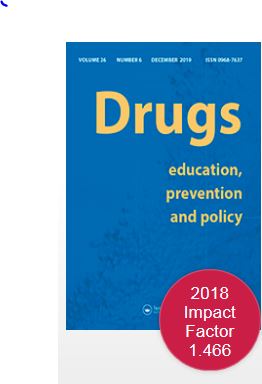
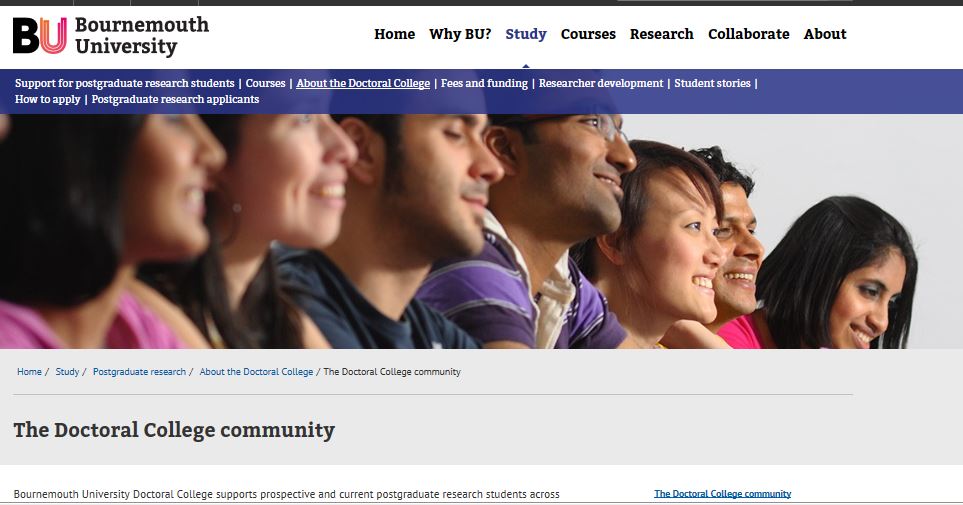
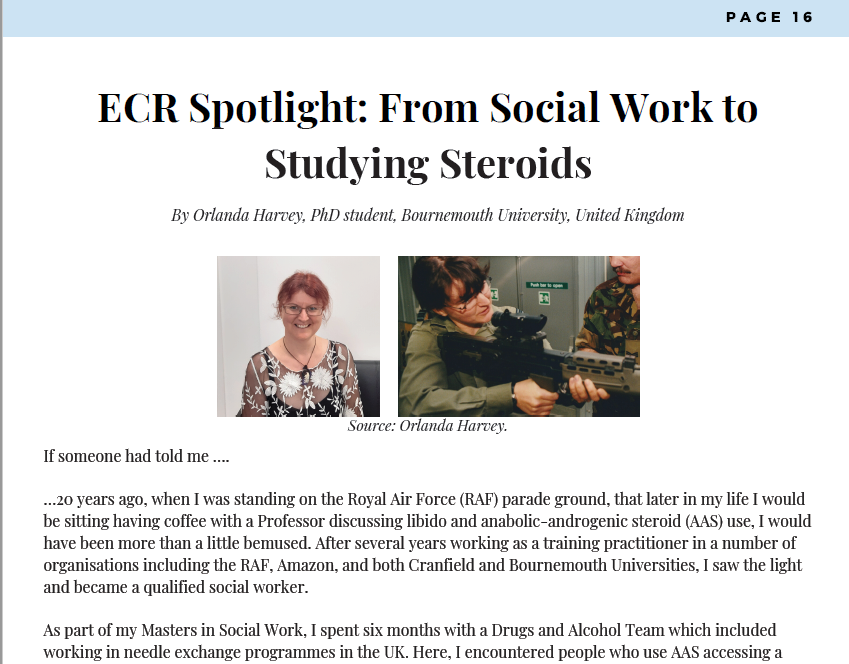
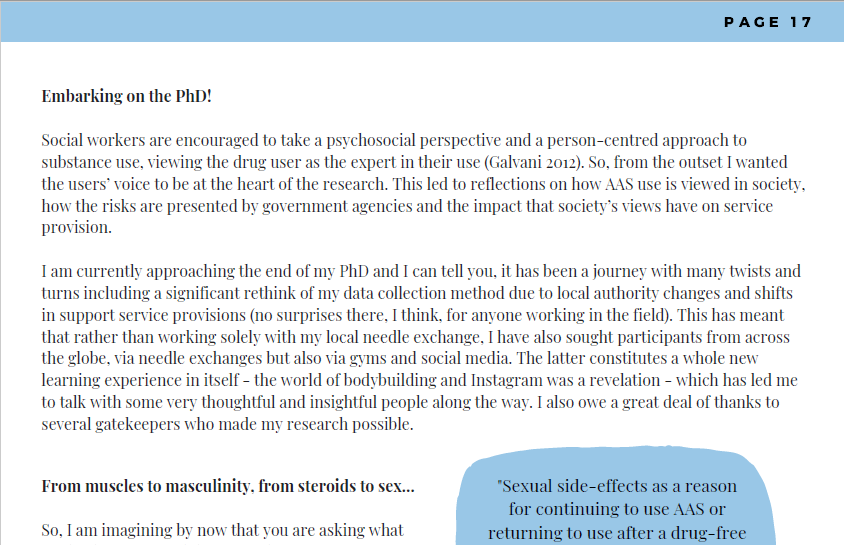





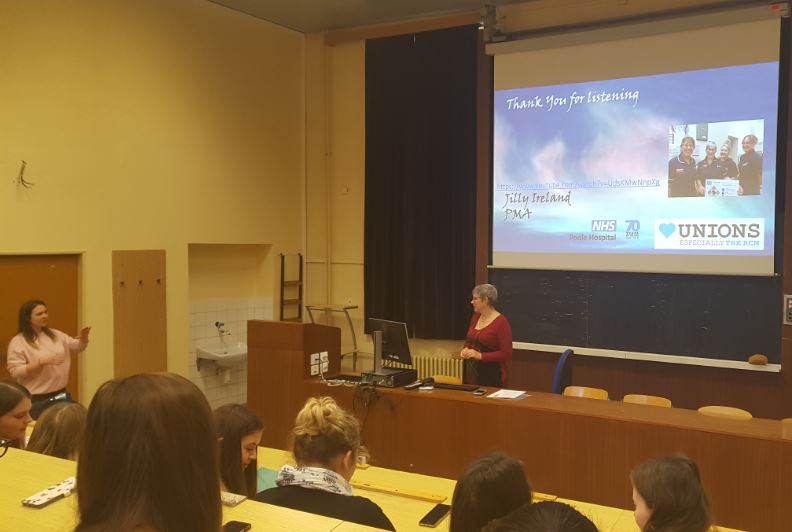

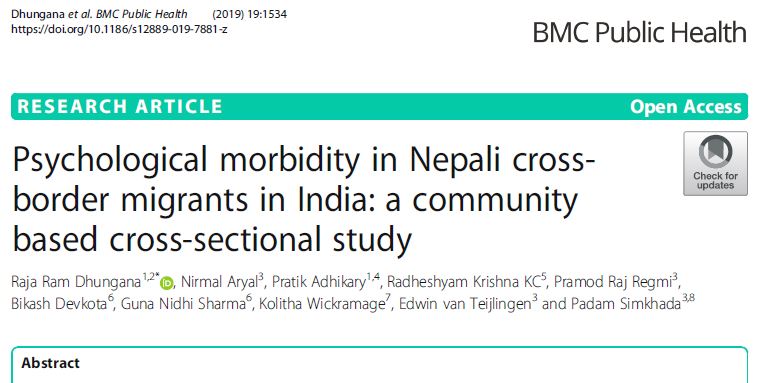











 BU Professor has been invited to a series of plenary and invited lectures.
BU Professor has been invited to a series of plenary and invited lectures. Research reaching non-academic audiences
Research reaching non-academic audiences April’s Café Scientifique – Should we help machines understand and respond to our emotions?
April’s Café Scientifique – Should we help machines understand and respond to our emotions? Postgraduate Research Experience Survey (PRES) 2024 – 2 WEEKS LEFT
Postgraduate Research Experience Survey (PRES) 2024 – 2 WEEKS LEFT Working with The Conversation: online training session – Wednesday 8th May
Working with The Conversation: online training session – Wednesday 8th May Apply for up to £1,000 to deliver an event and take part in a national festival of public engagement with research
Apply for up to £1,000 to deliver an event and take part in a national festival of public engagement with research MSCA Postdoctoral Fellowships 2024
MSCA Postdoctoral Fellowships 2024 Horizon Europe News – December 2023
Horizon Europe News – December 2023